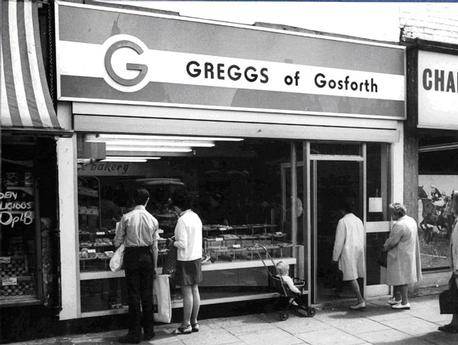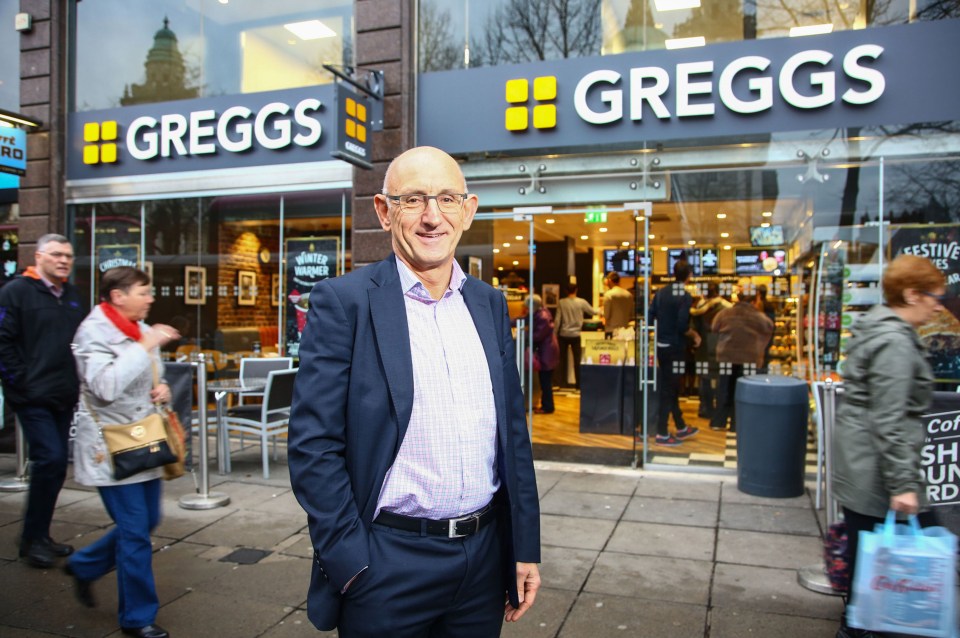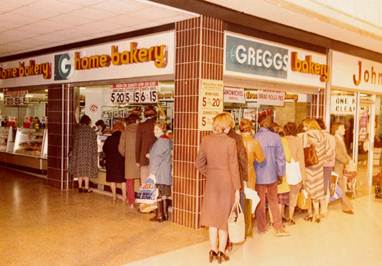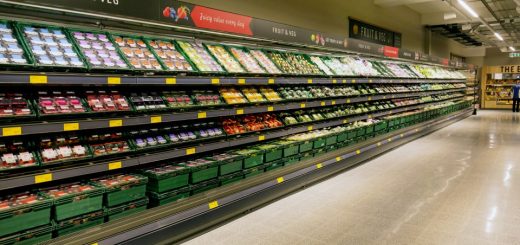How Geordie baker who sold yeast door-to-door created £1billion Greggs empire
JUST like the pastry on its beloved bakes, Greggs’ profits keep on rising in its rags-to-riches story.
It was announced this week that the high street favourite’s annual turnover topped £1BILLION for the first time in 2018 — not bad for what began as one bloke on his bike delivering yeast and eggs to miners’ wives on Tyneside.

It now employs more than 20,000 staff and feeds many, many more mouths as it bucks the trend of today’s retail doom and gloom.
Thanks to its purse-friendly, scrummy steak bakes, cupcakes and sausage rolls — it now even sells vegan ones — Greggs is a British institution and on a very tasty roll.
Yet it was all cooked up from humble beginnings.
In 1939, founder John “Jack” Gregg started touring Tyneside on his bike selling the ingredients for locals to do their own baking.
He soon swapped the bike for a van, but then left wife Elsie to do the rounds while he was away serving in World War Two.
By 1951 he had hit the high street, opening his first shop, Greggs of Gosforth, named after the area of Newcastle. With a bakery at the back, he was able to make, bake and sell fresh bread and other treats.
‘Many branches now open until late into the night’
Customers flocked in, and in 1953 the shop made a profit of £69, 15 shillings and sixpence — about £69.77 and the equivalent to just shy of two grand today.
Despite his shop’s popularity, though, Jack did not want his two sons to follow him into the baking game — and worked to give them the best education.
But in 1963, Jack fell ill. He died the next year from lung cancer, aged 55.
His son Ian, a solicitor, after studying law and classics at Cambridge University, defied his dad’s wishes and quit to take over the business.

It was Ian who masterminded the firm’s expansion — and one of his masterstrokes was to install small ovens at the back of the shop, the sights and smells luring customers, while keeping heavy baking off site.
Ian said of taking over the house that Jack built: “I think one of the big benefits was, I didn’t know anything about business or baking. I came with a fresh mind and listened carefully to what other people said.”
It proved a recipe for huge success — and the creation of the high street’s leading baker.
He opened more and more shops across the North East, Yorkshire, Manchester and Scotland. Within a decade, Greggs’ annual turnover rocketed from £100,000 to more than £5million.

By 1983, it had 300 bakeries, and a year later was listed on the Stock Exchange. Greggs’ turnover continued to rise over the next decade, reaching £50million in the Nineties.
The success has not been without scandal, though. Two years ago, Ian’s brother Colin — who seems to have had limited involvement in the business — was jailed for more than 13 years for a sex offences against boys dating back to 1963 when he was working as a teacher.
In 2012, Greggs also faced financial trouble in the shape of government plans to slap 20 per cent VAT on hot, freshly-baked takeaway foods.
But such is the public’s devotion to the firm, it sparked a huge backlash and The Sun launched a Who VAT All the Pies campaign to demand the tax be scrapped. Page 3 Girl Rhian delivered a 500,000-name petition to Downing Street.

The then Chancellor, George Osborne, duly U-turned — saying he had “listened to Sun readers”. He revised the plan so the tax would be charged only on cooked pies and pasties that were kept hot, but not those still warm after coming from the oven.
What Mr Osborne realised is that the nation just cannot get enough of Greggs. Many branches now open into the night — one in Newcastle even has its own bouncer at weekends.
In 2013 a Sky TV documentary about the business, Greggs: More Than Meats The Pie, drew 1.27million viewers.
Today there are more than 1,850 stores in the UK — more than McDonald’s or Starbucks — and chief executive Roger Whiteside aims to take this figure beyond 2,000.
But while Greggs has moved with the times — the launch of its vegan sausage roll this year has helped to boost profits — the chain has stayed true to its roots.

In the North East it serves local delicacy ham-and-pease pudding stotties.
No one is more surprised by the success than reluctant entrepreneur Ian, who retired as chairman in 2002 but remains a shareholder.
He says: “I set out at 25 with a view to running a small business in Newcastle — but it just took off.”



